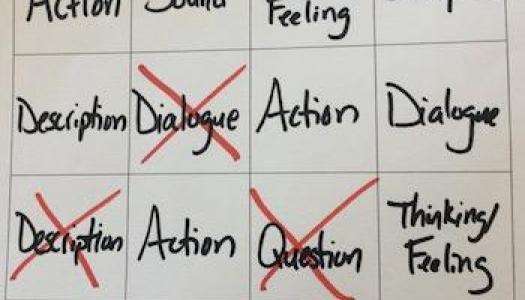Playing with Our Words

Join Our Community
Access this resource now. Get up to three resources every month for free.
Choose from thousands of articles, lessons, guides, videos, and printables.
One of my favorite things to do with writers is inspire a spirit of play. There are many ways to do that. One I especially love is to explore how stories begin. Depending on the grade level we teach, this can be done with a stack of our favorite picture books or by reading the first 50 words in beloved chapter books.
What we discover is that stories begin in a variety of ways. Here are some examples:
- Description
- Dialogue
- Thinking/Feeling
- Action
- Question
- Sound
I share examples from my own writer’s notebook. (I love doing this work in a writer’s notebook because it emphasizes the spirit of experimentation and play, removing the pressure to complete or publish something.)
“Six horses live in a field across from my house. I get to help out by taking care of them in the morning. Here is what my playing with beginnings sounds like when I think of them.”
Description—After closing the gate behind me, my boots plod through thick mud, and I step carefully to avoid the horse-poop mines that dot the field.
Dialogue—“Good morning, Ollie.” The enormous black horse nickers in reply.
Thinking/feeling—I hope I can give everyone breakfast without horse drama this morning. It makes me so nervous when they nip, kick, and chase each other away from the hay I give them. Why can’t they just share?
Action—I filled the black garbage bag with so much hay that it was almost too heavy to carry. Then I threw it behind my back and walked to the field like a very strange-looking Santa.
Question—Why do they always have to poop right where I want to walk?
Sound—The metal chain clanged loudly on the iron gate, announcing that I had arrived and breakfast was about to be served. All six horses nickered or whinnied a greeting in reply.
Although this work can be done anytime during the year, I find it is especially energizing right before a break or at the year’s end. Students may take a beginning they especially like and complete a piece, but that is just an extra bonus. The real goal is to develop a spirit of play with words, one that will continue every time they write.
Want more on this subject? Check out “Revision Fun—Varying Narrative Leads.”






